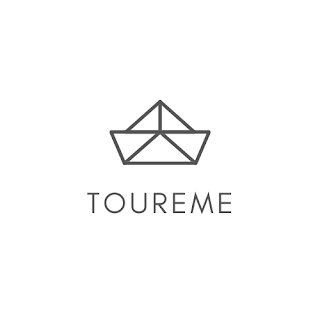We are delighted to annouce the publication of Travel Writing for Tourism and City Branding: Urban Place Writing Methodologies with Routledge, Taylor & Francis
Dr Charlie Mansfield and Dr Jasna Potočnik Topler
Travel Writing for Tourism and City Branding provides tourism students with a practice-based approach to producing researched literary travel writing on an urban destination, using the writing process as a research tool in itself. The book is scientifically supported with full academic references for researchers.
City councils and destination managers are seeking new ways to commission and sponsor professional authors as part of place-branding projects for tourism development. Given the increasing value of such content within the tourism industry, this book provides a cohesive overview of literary travel writing, presenting it as an inquiry process that can be applied by writer-researchers to spaces that have value to them. Travel writing is presented as a methodological process that researchers can apply to their own projects, both in academic settings and in commercial city branding. Examples of literary travel writing are carefully examined throughout the book. Enriched with a wealth of case studies, chapters are presented in such a way that readers can take the work as a model for their own projects.
This informative and practical volume will be of great interest to students of tourism marketing, destination marketing, place branding, travel writing, as well as current creators of commercial tourism marketing and information content. Lecturers, too, will find it an excellent course book in tourism discourse practices, with details on assessing literary work.
Hardback: 9781032014722
Paperback: 9781032014692
eBook: 9781003178781
To Cite:
Mansfield, C. and Potočnik Topler, J. (2023). Travel Writing for Tourism and City Branding: Urban Place Writing Methodologies. Abingdon: Routledge.
On Amazon UK
Sur Amazon FR
DOI: 10.4324/9781003178781
On Amazon US
TABLE OF CONTENTS
Introduction: Who is Commissioning, Producing and Reading Travel and Place Writing?
Chapter 1: Introducing Literary Travel Writing and Place Making;
Chapter 2: Affect, Experience and the Literary Text
Chapter 3: Travel Writing in Place Branding
Chapter 4: Value, Axiology and Written Representation of Place
Chapter 5: Methodologies and Practice
Chapter 6: Case Studies in Cooperative Travel Writing
Chapter 7: Evaluating Writing for Quality and Value in Mentoring
Chapter 8: Conclusions, Research Futures and Management Implications
Full List of References
Author Biographies
Dr Charlie Mansfield is an academic, lecturing at university since 1995. Charlie taught travel writing at the University of Plymouth in Tourism Management, where he was also co-director of the heritage research centre. He completed a major, funded research project for the CNRS with the University of Paris 1 Panthéon-Sorbonne in digital heritage management and was a research academic with the University of Edinburgh from January 2005 until July 2009 where he successfully completed an AHRC-funded research project to digitise mediaeval literary texts. He is an independent researcher and travel writer, regularly running summer schools for literary travel writers and Destination Managers.
Dr Jasna Potočnik Topler has been teaching at the University of Maribor, Slovenia since 2014. Jasna completed her studies in English language and literatures and in Journalism, and was awarded her PhD at the University of Ljubljana. Currently, she holds the position of Associate Professor. Her field of research includes cultural tourism with its subtypes, languages, tourism and media discourse, and communication. She is the author of monographs, scientific articles, conference lectures, and an editorial board member of many journals. She has been engaged in several international projects and in projects with students; the most recent under the EU Erasmus+ Programme KA220-HED is IN-COMM GUIDE that enhances active and inclusive teaching of literacy and communication skills for better employment and sustainable economic growth. As a guest lecture she has had cooperation with many European universities.
Book Reviews of Travel Writing for Tourism
“This book can be used by practitioners, students (undergraduate, postgraduate, and research), and lecturers alike. Despite the wide range of publications on destination marketing (and more generally speaking, on destination management), this book authored by Charlie Mansfield and Jasna Potočnik Topler offers a perspective which is under-investigated by academics and under-exploited by the industry, namely, travel writing. Additionally, the content of the book makes it a ‘one-stop-shop’ because it can be used for research methods modules (see chapters 4 & 5), for marketing modules (see chapters 1 & 3), academic skills (chapter 6), and even for creative writing modules on programmes other than tourism such as English literature (chapter 5). These chapters provide clear guidelines to researchers, students and practitioners interested in either producing travel writing or deciphering existing texts. One of the main strengths of this book lies in the fact that it goes beyond the visible aspect of destination branding, as it also explores the affect dimension of branding which is sometimes conveyed, enhanced, and communicated by travel writing."
Dr Hugues Séraphin, Senior Lecturer in Events & Tourism, Unit of Assessment 17 Research Lead, PGR Students Lead, University of Winchester, UK.
“This book offers an innovative resource to new and experienced travel writers, by bridging the gap between the field of creative writing and applied academic subjects, such as marketing and branding. As such, the book offers great value by showing the practical use and modus operandi of travel writing.The book can be used by managers in DMOs through its demonstration of the effectiveness of travel writing as a marketing tool. The real added value for practitioners and managers alike is that it renders abstract concepts very tangible and applicable to real-world situations."
Philipp Wassler (PhD), Assistant Professor, Department of Management at the University of Bergamo, Italy.
Free resources for lecturers and students who are using the process from the book Travel Writing for Tourism are available to download from TOUREME. TOUREME is the home of the TRAVEL WRITERS ONLINE university learning resources. Please click on logo below to access.






If you need a version of this textbook as a Google eBook, then it is now available from the Google Play Bookstore at https://play.google.com/store/books/details/Charlie_Mansfield_Travel_Writing_for_Tourism_and_C?id=iWCYEAAAQBAJ
ReplyDelete